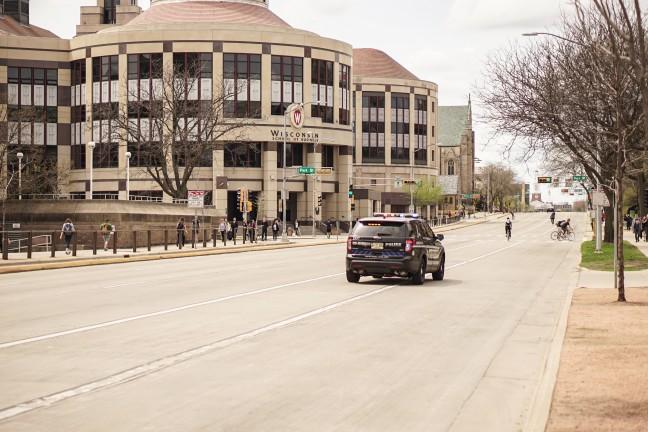A letter to the University of Wisconsin community by Chancellor Rebecca Blank Sept. 8 stated the growing number of positive COVID-19 cases is due largely to off-campus students going to social gatherings without wearing face coverings.
According to The New York Times, this trend of increasing cases as college campuses reopen is seen in a number of other universities around the U.S., including the University of Alabama at Birmingham, University of North Carolina at Chapel Hill and Texas Christian University.
UW-Milwaukee Police Department Chief of Police Joseph LeMire said the department is aware of these trends and wants to learn from the mistakes made by other universities.
Online petition calls for UW student fee reimbursement following shift to all online learning
“The question is, what are we doing in Wisconsin to stop that from happening since so much time, money [and] energy has gone into planning how we are going to bring students back face-to-face,” LeMire said. “What are we doing to prevent social gatherings from taking place?”
According to the UW-Milwaukee COVID-19 information website, safety and disruption concerns will be addressed with proactive education and cooperative layers of enforcement by the UW-Milwaukee Police Department.
Measures the UW-Milwaukee Police Department have taken include regular emails to students, increased patrols in surrounding neighborhoods and a required Panther Pledge taken by students. This is similar to the Badger Pledge, which outlines COVID-19 expectations for UW-Madison students.
According to LeMire, the police department’s goal is to enforce Milwaukee’s public health guidelines in a cooperative way.
“I find that shared governance works. Work with the students, not at the students,” LeMire said. “Not everyone is going to comply, but a majority of people will and that is what is going to help us stay on campus this semester and get people to graduate.”
The Office of the Chancellor at UW-Madison released an announcement Sept. 15 stating UW was aware off-campus conduct would be an issue and deployed staff into student neighborhoods to look for parties and encourage compliance.
Medical experts express concern over return of Badger football
UWPD’s Director of Communications Marc Lovicott said UW-Madison is implementing a similar protocol to the UW-Milwaukee Police Department in regards to policing off-campus social gatherings.
“It is an effort to be visible and educate students about public health guidance,” Lovicott said. “Also reminding students about the public health guidelines and the directive that is in place.”
According to LeMire, the UW-Madison and UW-Milwaukee police departments are working in cooperation with their respective Dean of Students Offices.
Students and faculty members at UW-Madison can also assist in lowering cases by submitting a COVID-19 Public Health Concern Form if a student repeatedly violates the Badger Pledge expectations.
Central District Captain of Police for the City of Madison Police Department Kelly Donahue said in an email Public Health Madison and Dane County is the primary point of contact for complaints and MPD will continue to assist PHMDC as needed.
Eight Wisconsin cities make New York Times’ list of areas with fastest growing COVID-19 cases
In the same email statement, Donahue said MPD will not be enforcing individual mask-wearing compliance but will continue to assist PHMDC in addressing other issues such as capacity limits and gathering sizes.
According to Lovicott, the increased police presence made a difference in student behavior and currently there is no need to intensify the measures in place.
“I think any time that people see officials from the university, there is a difference,” Lovicott said. “It is something we will continue to evaluate and if it is something we need to ramp up, we will do that.”
UW-Madison Dean of Students Christina Olstad said the university has investigated or is currently investigating nearly 450 students and nine student organizations for public health violations in an email sent to students Sept. 18.
UW-Madison’s Director of News and Media Relations Meredith McGlone said in an email Olstad and other Student Affairs staff also visited students in off-campus neighborhoods.
Currently, a directive from Chancellor Blank asking students to limit in-person interaction for two weeks is in place. It will be in effect until Sept. 25 in hopes of limiting the spread of the virus on campus.
According to LeMire, January 2021 will bring a sense of normalcy if students follow the guidelines.
“We want to work with the students,” LeMire said. “There will be plenty of time in life to party and gather if we can just get through these next few months.”














